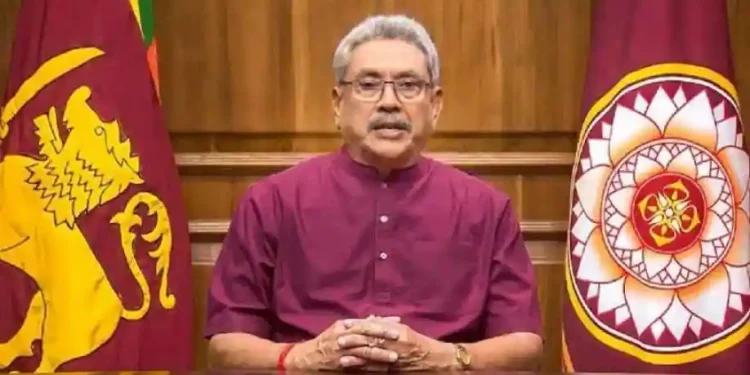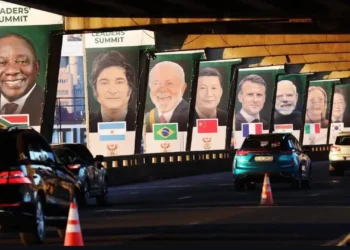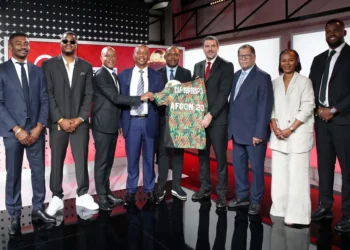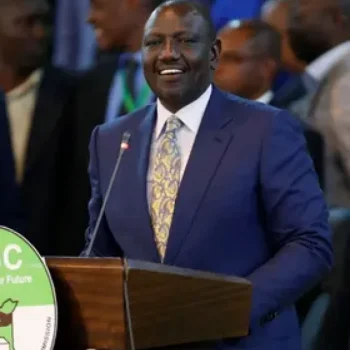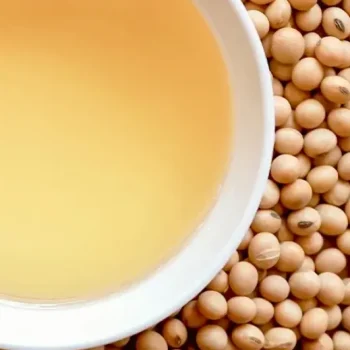There are several things that you must know about Gotabaya Rajapaksa’s resignation. The President of Sri Lanka has resigned and his Prime Minister Ranil Wickremesinghe.
KAMPALA | NOW THEN DIGITAL — The resignation of Gotabaya Rajapaksa has caused many people to feel uncertain. The president of Sri Lanka has resigned and Ranil Wickremesinghe, the country’s prime minister, has also resigned.
- After a massive protest by anti-government protesters last Friday, Gotabaya Rajapaksa resigned as president, following a storming of the presidential palace compound and entry into the president’s office.
- The Prime Minister of Sri Lanka Ranil Wickremesinghe has also resigned, and this move paves the way for a unity government.
- Many, including those who were part of the ruling party, are relieved about Ranil Wickremesinghe’s resignation. However, the appointment of a new prime minister may not prevent public anger from escalating.
- Sri Lankan Prime Minister Ranil Wickremesinghe invited David Beasley, Executive Director of the World Food Programme (WFP), to visit the country in June.
- Read also: In a shocking act of violence, former Japanese Prime Minister Shinzo Abe has been shot dead.
This news is very important as a curfew has been imposed in Colombo. Protesters have taken over the president’s residence.
Gotabaya Rajapaksa resigns
Sri Lankan President Gotabaya Rajapaksa is stepping down from office on Wednesday, the country’s speaker of parliament announced.
After months of unrest over the country’s economic crisis, protesters broke into the presidential palace and demanded that the government step down.
Earlier in the week, the prime minister and the president both agreed to step down, but Rajapaksa decided to stay until Wednesday to ensure a smooth transition.
The President Gotabaya Rajapaksa’s resignation came after a massive demonstration by anti-government protesters on Friday. Protesters stormed the presidential palace compound and entered the President’s office.
However, the president was later escorted to safety. Videos on the internet showed the President being loaded onto a ship and being escorted away.
Thereafter, a new government will be elected with a new Prime Minister and a general election will be held after a period of time.
The ailing economy in Sri Lanka is a major concern for foreign investors, and the president is facing mounting pressure to step down.
The opposition has consistently refused to work with a unity government until he steps down. But the current situation is worsening, and a new President is needed.
After the inauguration of the new administration in May, the president will no longer be able to claim credit for the disastrous economy.
The resignation of the Sri Lankan president has triggered violent protests and a violent response.
In the aftermath, thousands of protesters stormed the President’s official residence in Colombo, setting aside benches and chanting slogans in a bid to topple the government.
Video footage from inside the presidential residence showed the protesters bathing in a swimming pool. It was unclear whether the protesters were wearing helmets or carrying Sri Lankan flags.
Governing in unity: Wickremesinghe steps down
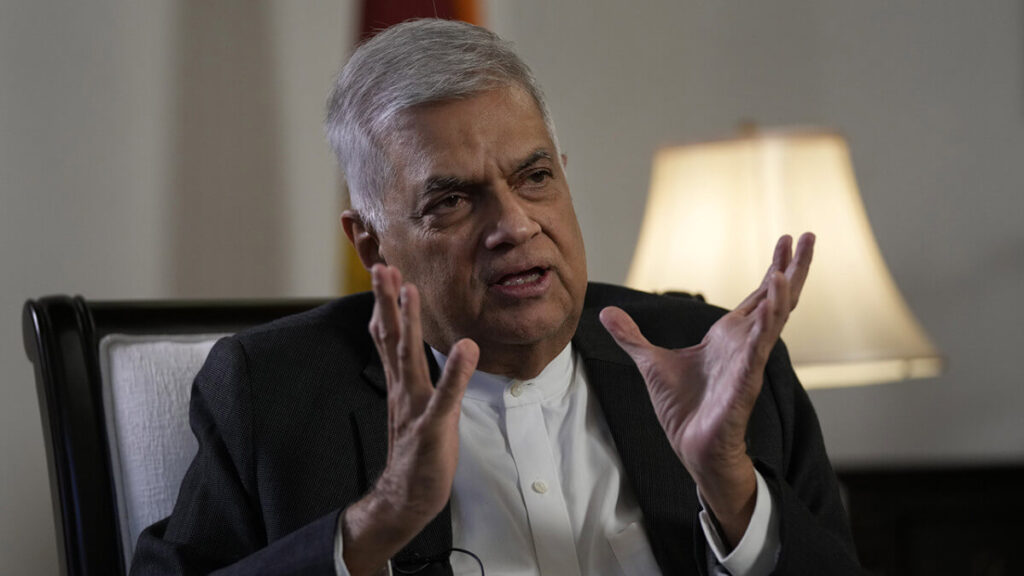
Prime Minister Ranil Wickremesinghe has announced he is stepping down as he is unwilling to continue leading the country without the administration of a government.
Earlier, the president had fled after a mob stormed his residence and forced him to flee. But the president has not yet announced his resignation.
In a statement released by his office, he said he is willing to step down.
Earlier this year, The World Food Programme (WFP) Executive Director David Beasley accepted an invitation from Sri Lankan Prime Minister Ranil Wickremesinghe to visit his country.
Ranil Wickremesinghe’s resignation comes as a relief to many, including members of the ruling party. However, the appointment of a new prime minister may not be enough to calm public anger.
The opposition party has also rejected the new prime minister and called for his resignation.
In the meantime, Wickremesinghe’s new administration will face a difficult task as the country experiences its worst economic downturn in history. Public anger has boiled over after months of shortages.
The new PM has already reached out to potential allies, including former Prime Minister Ranil Wickremesinghe. However, his coalition has not ruled out pushing for a new government.
The decision to step down has been a long time coming. But the country’s current government is divided between a majority Tamil and a minority Muslim government.
This is the country’s first ever non-majority government. A unity government is a good thing for Sri Lanka’s economy.
This government is making an effort to resolve the country’s many problems through a unity government, but it is still up to the opposition to agree to the deal.
While the current government has limited resources, the TNA’s offer to reconstitute the government’s cabinet is absurd. With the country’s economy in such a state, it is unlikely that the government would have the money to pay for the poll.
As a result, many schools have been forced to postpone exams.
In addition, opposition lawmakers fear that a military takeover may be imminent, but Defence Minister Kamal Gunaratne has denied this.
Curfew imposed in Colombo
Earlier today, thousands of police officers and armed soldiers were bussed into Colombo, Sri Lanka, to keep the peace and ensure the safety of the country’s president.
Protesters have been camped outside the president’s office for months, demanding the resignation of the 73-year-old for alleged economic mismanagement.
At the President’s residence, protesters filled rooms and shouted slogans, threatening to storm the residence.
Earlier, the government had sanctioned thousands of armed soldiers into the capital from other provinces to guard the president’s official residence.
At the time of the curfew, the United Nations urged people to keep the peace and avoid disrupting the government’s activities.
The government’s resignation has caused a rise in anti-government protests in several parts of the country. The anti-government protesters also clashed with government supporters and set fire to vehicles.
The government has deployed armed forces in many areas of the country, and the police have imposed a curfew in Colombo until Wednesday. Several people have died during the unrest, including three police officers.
The police chief has requested for residents to stay indoors, despite the curfew. The bar association is calling for the police to lift the curfew.
Earlier, a government-imposed curfew in Colombo was defied by thousands of people. Protesters were heard chanting “Gota(baya) go home” from the streets.
A government-supported goon attacked a protester on a bus in Gota Go Gama. The protesters demanded the resignation of Rajapaksa and resign as president.
The protesters demanded the resignation of both the president and the prime minister. Protesters occupied government offices and set fire to them.
The protesters also set up benches to display their anger at the country’s economic crisis. The Prime Minister, Ranil Wickremesinghe, said he will step down as soon as a new government is installed.
Despite the protesters’ demands, the president will remain in office until Wednesday to avoid any disturbances.
Protesters occupy the president’s residence
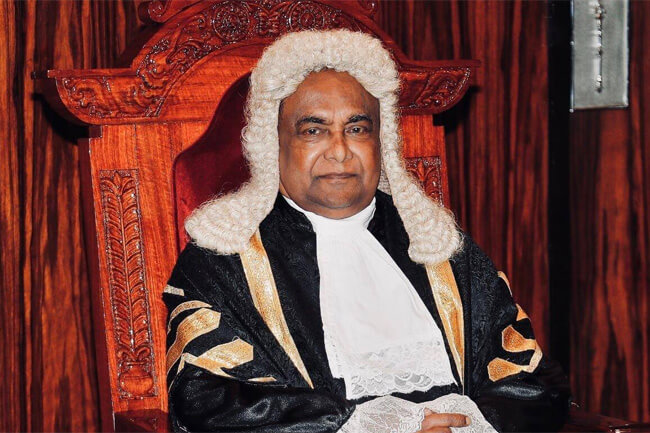
Sri Lankan protesters have taken over the President’s residence, forcing the government to halt train services to Colombo.
While the protesters did not break any property, they did scuffle with security personnel, who attempted to keep them from running through fences to the president’s seaside office.
The clashes left 34 people injured, two of them in critical condition. Some of the others were only slightly injured.
The Speaker of Parliament Mahinda Yapa Abeywardena has called for a smooth transition. The current Prime Minister and Minister of Finance of Sri Lanka, Wickremesinghe said he would resign but would not step down until a new government is formed.
During the protests, he also suggested an all-party government and urged the Parliament to convene immediately to elect an interim president.
Despite the protests, the government said Rajapaksa would remain in office for now to ensure a smooth transfer of power.


